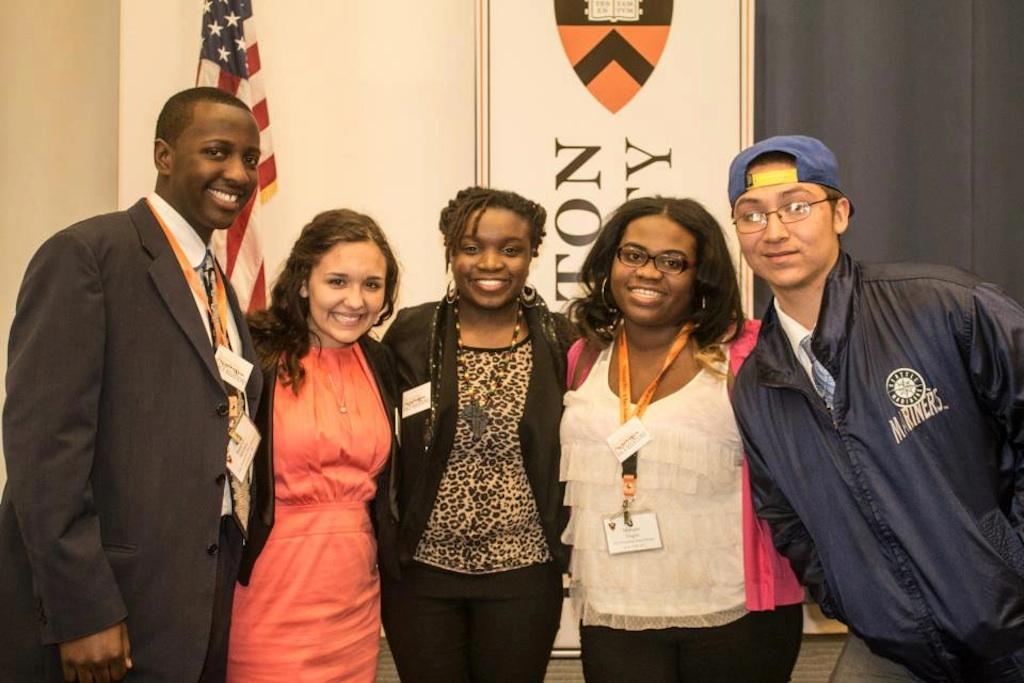If we don’t understand each other then we are bound to mistreat one another. And if we are not curious about all cultures, ethnicities and affinity groups, we miss opportunities to strengthen our community because of thoughtlessness and indifference.
In the spring of my sophomore year, I attended the 5th Princeton Symposium on Race Relations with my fellow peers: Maya Littlejohn ‘15, Chelsea O’Neil ‘14, Sunny Birdi ’15 and DeAndra Forde ‘15. This one-day conference focused on how the identity of race shapes our values and its impact on society. On April 27th, 2012, high school students from across the nation gathered to discuss race relations. Twenty-two high school students were honored for leading and executing projects that dealt first hand with race relations in their school or community. During this day, we were challenged to lean into discomfort to uncover the power of one’s identity through replacing our preconceived notions with empathy. The facilitator prompted provocative conversations such as: what is the cure for racism? And how does one transform racial grief into social claim? These prompts, posed throughout the day, created consequential discussion.
The most memorable part of the symposium was a quote, “It takes really hard work not to see.” This Toni Morrison quote truly addresses any situation that requires change. With this quote in mind, we examined how as a nation, we are obsessed with the progression of racism. We are hyper sensitive to how the “race card” is used and aware of the infamous Clark Doll Test of 1949. By definition, ‘playing the race card’ is “an idiomatic phrase that refers to the exploitation of racist or anti-racist attitudes by accusing others of racism” (http://oald8.oxfordlearnersd ictionaries.com /dictionary/race-card). The Clark Doll Test of 1949 experimented with the perception of race through dolls. The researchers asked a series of racial preference questions to children. The children unanimously identified the most positive attributes to the white doll. Like the race card, the Clark Doll Test of 1949 exemplifies the progression of race in America and reinforces the necessity for the continuous struggle for racial harmony. Since attending the 5th annual Princeton Symposium on Race Relations, I was empowered to embrace change as a catalyst for learning and inspired to take action to improve race relations at Berkeley Carroll.
Consequentially, in September of 2012, I co-founded a diversity literary magazine entitled, The Other Voice. This online blog is a legacy that gives a voice to students who are passionate about diversity and race relations. The articles that students contribute have the potential to teach empowerment and change. I created this online publication as a legacy that I hope will become an integral part of student life at BC and benefit all the students. For my efforts to improve race relations at Berkeley Carroll in the global community, I was awarded the 2013 NYC Co-Princeton Prize Winner for Race Relations last spring. This award is just the beginning of much more diversity initiatives to come. I hope that this online publication will spark conversations of consequence, be a vessel of change for the future of Berkeley Carroll and a legacy that will thrive long after I graduate this spring.
Click the link below to see the online Upper School diversity publication, The Other Voice, to see student opinions on race and other diversity issues at Berkeley Carroll and beyond:
https://www.theothervoicebcs.weebly.com
We greatly appreciate your support.

